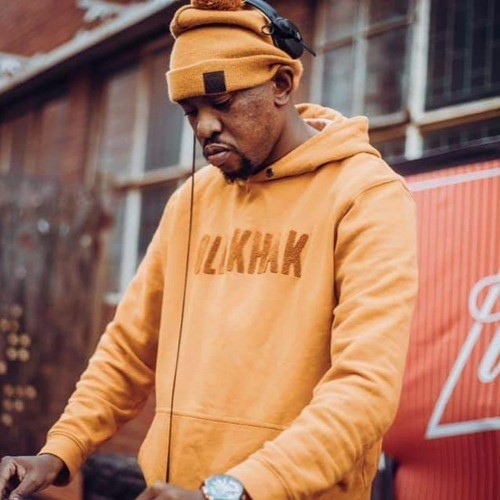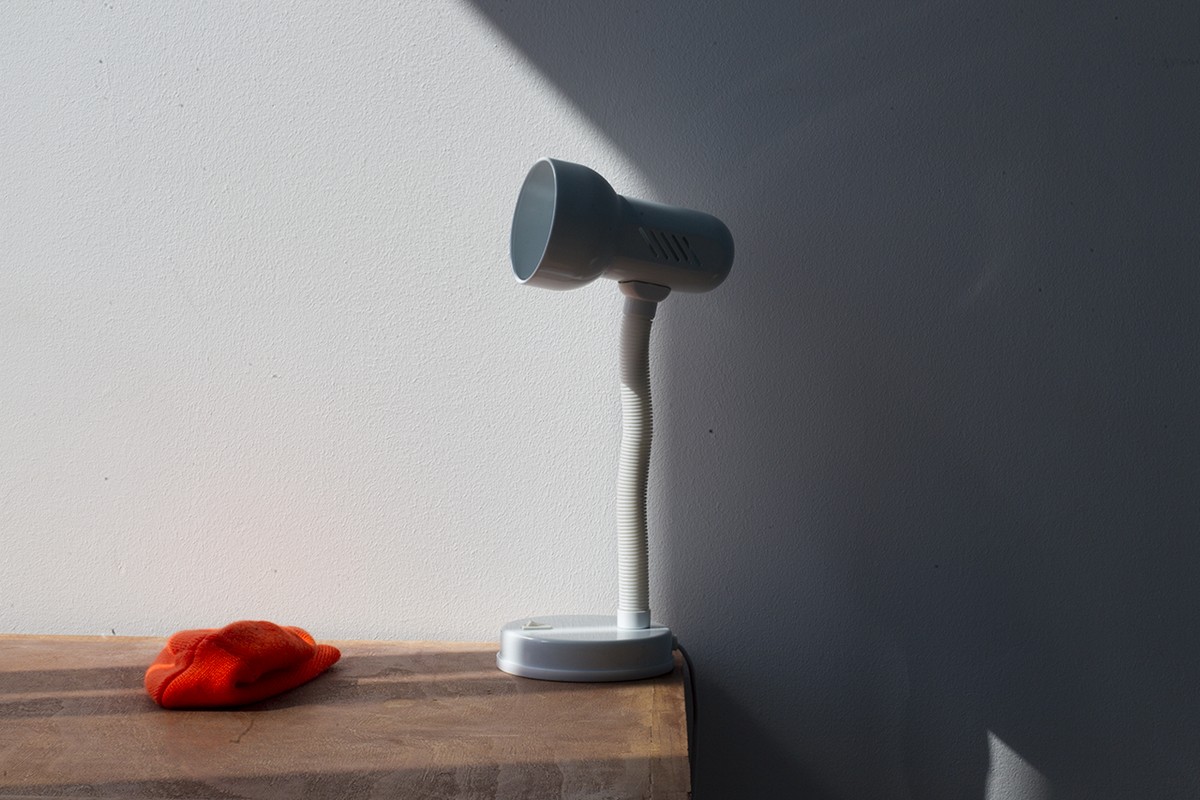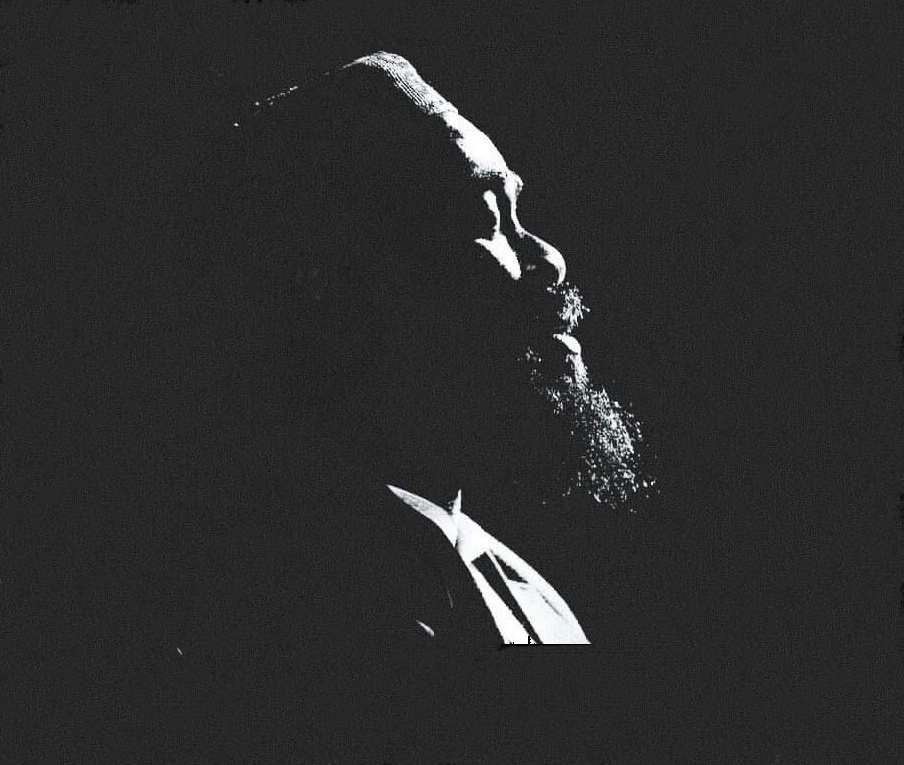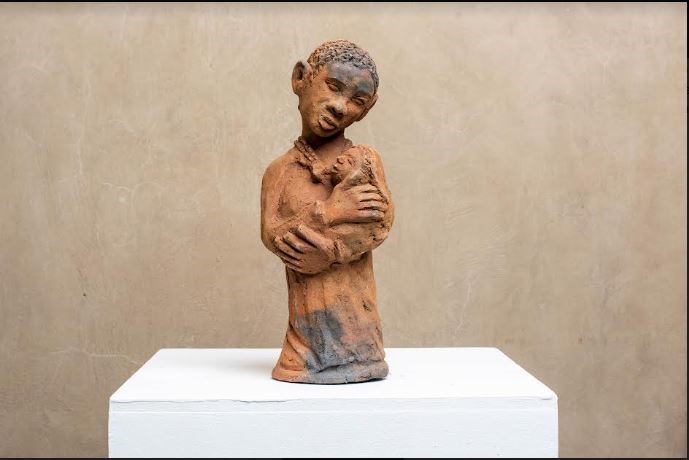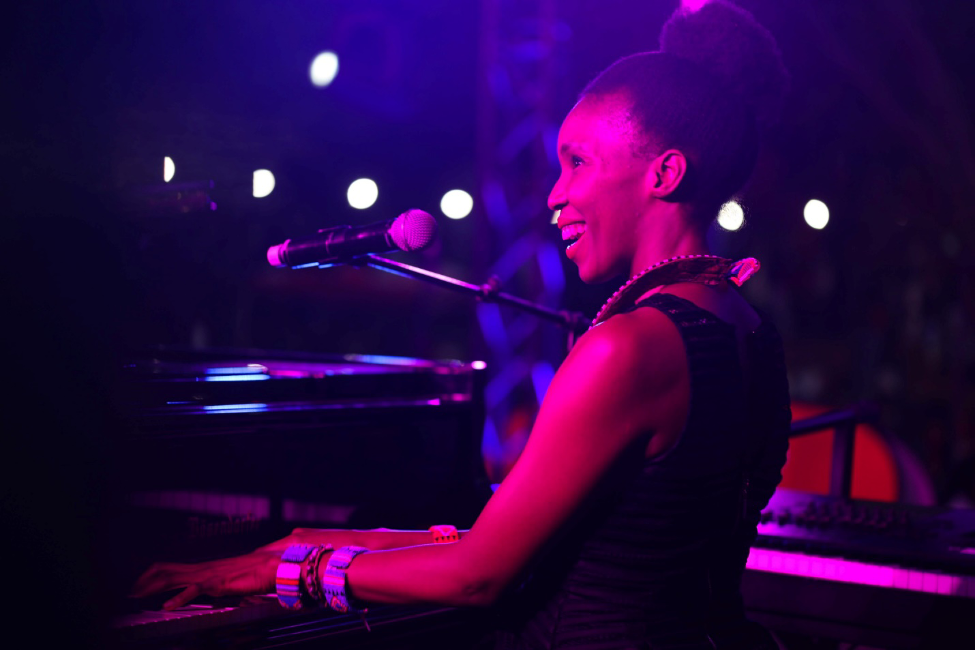There is this beautiful sound. Not that it is anything new. It has been there, buried deep and it has been doing those animated rounds in the underground soundscape ceaselessly and possessively. Those who know this sound, by way of encounter and experience, have intimate narratives to share whose articulations go beyond the everyday language. This is the sound of dub and techno in its minimalist, ambient, downtempo, deep, and many other forms which can be summed up as deep-dub-techno.
As the spectral sound, deep-dub-techno haunts the soul, and it is for the ears that are defined and refined to go into the abyss. This is not to suggest any snobbish exclusivity and its attended individuation, but it is what has to do with the musical taste, a shared experience, more even. Safe to say, if this sub-genre is edible, it is delicious—¬bon petit!
It is known that deep-dub-techno vibrates most dancefloors in this territory called South Africa. However, it is the genre of the underground with its sizeable following. But most of those who appreciate it are schooled and devoted to deep house. The thing is that it is what is not familiar and trendy. It is a sound, by lack of precise characterization, that is deep, dark, heavy, spectral, mellow, atmospheric, highbrow, and spiritual, and its underground following is a sort of devotional sect. All there is to it is that groove, that thing that goes on and on; what sets people to dancing smoothly until they drop (but without sweat). It is the sound of the unknown, and it is this mysteriousness that makes it sublime, substantive, subtractive, and subjective.
The story of deep-dub-techno starts in 1993. Its German architects, Moritz Von Oswald and his mentee and friend, Mark Ernestus, knew what they were doing when they gave birth to this ambient, experimentalist, minimalist, hybrid, and mystical sound. They did smudge that dominant bassline of dub and made it more rhythmically spacious to allow it to sound correspondingly with other forms of effects found in techno and dub and their other sub-genres. This is the work that Von Oswald and Ernestus continue to do under uncountable projects and movements. It is through their work and many others who have taken up deep-dub-techno by making it the sound that is going nowhere. In short, it is here to stay, forever. The chief reason amongst many is the manner of its rhizomic proliferations. This also brings the boundlessness of its sound even though it is distinctively marked. The character of being unique, and that being something that can be extended to the South African territorial sonic landscape tells a lot.
Back to language. Those who revere deep-dub-techno are mostly at a loss for words when they speak about it. When it comes to this sound, the monolingual tongue not only turns multilingual, nor even creole, but becomes glossolalia (speaking in tongues). Or, so to press on, it becomes the mode of speaking that utters what dissolves. It is the unsayable, unintelligible, unclassifiable, untraceable pathos of the otherwise tongue and its multiplicities. This is not to suggest that there is nothing that is called language. What is language is still there. However, it is in a form of its trace, its residue, and its transposition which does not transport itself to any form of an inscription that comes into being in the mode of transcription. There is nothing of an unwritten form in terms of glossolalia. It is a language without linguists, philologists, lexicographers, and grammarians. It is what is yet to be written or organized into language. This is what deep-dub-techno is. Its effects are of the apparition of what is in the past, present, and future folded into one—sedimentation.
What is found in the sound effects of deep-dub-techno are its bassline, rhythmic drums, echoes, and many ambient, atmospheric, and industrialized sonic objects speaking their language. It is the sound of plenty of stuff from the machines and their technology—sonic waves, filters, frames, effects, reverbs, loops, intertextualities, adjournments, and repetitions. Still, even, there is no language to capture it, and even its articulation becomes some sort of dialect or the dialectical unfolding that does not yearn for any synthesis, but the constant refinement of the thesis and the antithesis itself, the deepening of their tension, their negation, and their negotiation. This is what is no longer pure if purity is valorized, it has no currency. What can be said is that there is a need to capture the idea of beauty because that is the chronicler and descriptor that defines deep-dub-techno. This beauty is carried by people who follow, search, discover, create, play, feel, exchange, transfer, remodel, produce, perform, and dance to this music. They are, by characterization, its creators, its disciples, its revellers, its evangelists, its intermediaries, its interpreters, its witnesses, its interlocutors, its critics, its scripters, and its aficionados.
With all the above-mentioned, right here, in this country, and also in the world at large, deep-dub-techno has one of its vanguardists. Born and bred in Pimville, Soweto, Nobuhle Nhlapo, who goes by the stage name DJ Buhle, is one of the few DJs who are marshalling, charging, producing, performing, advocating, experimenting, and executing deep-dub-techno. Many things are done by DJ Buhle when she is on the decks working on this sound. It is safe to say all is well—yes, the chilled, steady, divine sound is served from the hands of its obdurate vanguardist. Deep-dub-techno is the sub-genre that marks her distinctiveness as she delivers it with elevated aesthetic sensibility, sharp craft, and solid spirit. Her sonic signature on the decks is known for its vitality, fluidity, uncertainty, density, and hybridity. This, it should be noted, is some intense stuff and she does not compromise as she is all about things deep. That is why her being an award-winning DJ is something that is backed up by her regimen. DJ Buhle started as “all things deep DJ” and she still goes deeper into the abyss to explore and study this spectral sound. Yes, this is the sound that she crafts and delivers through deep-dub-techno, which, in itself, has many shapes and bents which attest to the vastness of this sub-genre with its unique haunting effects.
Doing what is not locked in the fetish of “soulful stuff” which is the domain and constriction that female DJs are wrongly mostly confined to, Buhle defines her sound in a way that its liberatory impulse translates into the workshopping of the soul. She is not about the conventional sound. In the sound, she is working on and through, the soul is elevated and made to be unsettled as it is brought into an elevated aesthetic place and plane where the case is made and thus rested on what even most male DJs do not do, which is having to wrestle with the sound that hits inside the gutter, deep-dub-techno. This is what transforms the dancefloor into a ritualistic space. Just to emphasize, deep-dub-techno, in itself, is a ritualistic sound. Buhle states that she is there to heal through music. This, of course, is her ancestral gift.
Stating that she is not a beautiful face behind the decks, Buhle is armed with knowledge and skill whose death and breadth spans radio, drama, production, and public speaking, and what is yet to be known is that she is a guitarist too.
Going deep with Buhle, that is where things are. The minimalist inscription of the tracks she selects and plays, which also includes the ones that she produced, speaks to the soul in the celestial tongues whose bass and rhythmic rhizomes are effects and affects of living otherwise. This is not some nocturnal stuff; it is the sound of all times—anytime.
Locating Buhle within the realm of deep-dub-techno is to recognize the fact that she is not reducible to it. Many genres and sub-genres are part of her fold. Her knowledge of music is not only expansive but fundamentally deep as she is the heir to her grandfather’s musical heritage. Mkhulu Paul Nhlapo, not only apprenticed Buhle in music, but he also instilled the value of education in her and taught her the ins and outs of the music industry. As a granddaughter, Buhle drank from her Mkhulu’s well of wisdom and she allowed him to be her music principal, more than that, he became the one who drove her to gigs, watched her throughout her sets and supported her through and through. Also, to add, Buhle says: “When I played one of my earliest gigs in 2005 at Uncle Tom, the whole family was there.” This is rare. Most of the time because most family members will not approve of their young daughter being late and out on gigs, most will not care to come and see what their daughter is doing. Things, for Buhle, have always been different, if not unique. This uniqueness is even apparent as she not only makes it known that she draws from her grandfather’s musical taste, style, and selection of jazz but how she blends and bends sound. What marked Mkhulu Nhlapho as the one who will hand over the baton to his granddaughter is the best inheritance and, even, heritage. This is a rich heritage and it is not farfetched to say that Buhle carries his spirit within her powerful sets. Her grandfather left her a huge jazz collection and she has a huge vinyl collection of R&B (the music that she would play if she was not into the deep stuff she works on).
It is in deep-dub-techno that there is that journey Buhle takes, and it is clear that she is going far and deeper to the core of the body, mind, and soul. It will not even be an exaggeration to say that Buhle is taking us to the realm of the elsewhere—the abyss.
Make no mistake, Buhle still plays deep house. Her sets are blends of what cannot be easily categorized at times. Buhle is a kind of DJ who makes deep house in the sub-genre of deep-dub-techno. Buhle takes things too far, deep, instead of wanting to be palatable to what is rendered relevant. Things are always on the edge. Charting paths that are not chartered, but that wander(ing), is the definition of Buhle.
Soulful energy, acid aesthetics, and sounding like the dissolve, is what Buhle brings to the ear. Of course, this is the ear that should be open and absorbing. When the ear comes into contact with her extended play album releases: Winter’s Call (December 2019); Winter’s Call Remixes (February 2020); Autumn Tips (May 2020); 4 Seasons (May 2021); and Grey (December 2021), stories do emerge on what was listened to and what that did. With these instalments, Buhle takes her own direction. Her destiny is written in the stars. That is why the name Buhle has its re-named extension—Buhlebezulu. This, by way of literal translation, can be, the beauty of/in the sky. All these album titles denote the form, texture, composition, and fluidity of the sky and its beauty. In all her albums, the re-named extension is cemented in solid terms. These albums are about her being, her journey, her experiences, and more, in particular, her narrative. It is in these albums that the beauty of the sky is connected with the ambience of deep-dub-techno and also its mechanical compositions of freedom, its aesthetic signature if you will.

Looking up to the beauty of the blue sky, and its sun and clouds—or, at night, where the moon is in crescent, half, and full form, and not to mention the stars, there is nothing but sheer beauty. Even though there is silence from the sky unless there is rain and thunder, there are those earthly sounds of species which, in the natural form, become the ambience of deep-dub-techno if there is, in the mixture, how the human species have industrialized and technologized stuff coming from the machines. By fusing natural things and those of human invention, and the creative force being the marking of freedom, there is all there is in making beauty stand out even if there is all that is grotesque that is happening on earth.
In the aural sense, and sound being the medium through which the beauty of the sky is being mapped, Buhle’s work, in its uncompromising fashion, is what does not only leave a mark but what marks a different inhabitation of the earth.
She is breaking new ground all the time. She is the interruption—or, even, more profoundly, rupture. This is a testament to the fact that she is powerful and she is doing her own thing, her (own) way. Aligning herself with a crowd she wants, and playing the style of music she wants; she focuses on her victories. Buhle always remains consistent in what she does. Buhle, as a producer, does what comes to her as she understands that music is what is given to her, and she is in service of it. She is doing what is in her blood. She knows what she is doing in the music industry and by working in her way, getting into its politics is not her preoccupation.
In doing what she does, and thus not compromising on her aesthetics, in the eyes of the popular and mainstream, she plays music that is not relevant. The banal statement will be that the music she offers does not resonate with the tastes of “the people.” This will be said as if there is one conception of the people. But whoever they are, this statement even goes further to say this music is not relevant. It is the music that is not on radio charts, television shows, and all forms of passive consumption which go on in the name of “the thing that is trending now and getting everyone on the hook.” Or, so to say, it is what is on “everyone’s mind.” Still, again, that “everyone” remains an elusive referent. What even goes unmentioned are the machinations of the entertainment industry. The less said about this, the better.
Deep-dub-techno and other underground genres are not friendly to the uninitiated ear. If this ear only knows what is popular and mainstream, surely, it will, unfortunately, be deaf and/or indifferent to the message that Buhle disseminates on her decks. The ear will not take what she generously offers in this sound. This ear, its stubbornness notwithstanding, is of the soul that will not be shuttled by this music to the blur of what comes in the name of the categories of singularities of the genre. This ear will not listen (as a result of its deafness and indifference). Everything will be passive, and even so, this music will just pass through instead of entering and hitting the soul. To this stubborn ear, everything that deep-dub-techno carries will be nonsense. There will not be the opportunity to make sense of what is wrongly deemed “nonsense.” If this ear holds on to its foot-dragging, even deep house in its deep funk, acid lounge, deep soul, gospel, speed-garage, and abstract forms will not be audible. These aforementioned sub-genres are where deep-dub-techno is, and it can be said that it is even their fusion, even more—what is out there, out of space, out of time—the disintegration of the regionality of the world and to usher other worlds, where Buhle’s soundscape is doing its thing right here, right now.
Just like deep house in its high-tempo, deep-dub-techno assaults the structurally adjusted tastes that aim to confine any form of difference. Even so, it is the sub-genre that is always redefining and refining itself amidst any form of saturation that comes in the name of, for a lack of a better descriptor, a “popular genre.” It is all about sharing, that sense of giving and care. Deep-dub-techno is the radical expression and representation of the underground movement. The imperative is the message that this music invites the community of listeners to inhabit another space, out there, another cosmos. Also, to emphasize, there is a galaxy of soundscapes that are there and must be given an ear. This is not a claim, but an indisputable fact. By being different, deep-dub-techno, like other sub-genres of techno, deep house, funk and many others, is authorized by those who want to embrace the freedom of being different. In this quest, those who love this sound, will not ask for permission, and they will vow to transgress whatever claims to be the last word. It is known that there is a cost that comes with this. They are made not to appear, and they are further pushed underground. But the love for freedom to be different is what drives this underground movement.
Yes, this does not make it into the mainstream and commercial airwaves and screens, nor does it form what can be popularized to feature on the chart list. This is the sub-genre of the underground movement, the generality here not only being deep house, but the specificity of deep-dub-techno which calls for renewed habits of listening to the the soundscape that sets the dancefloor in (e)motion. Whether this music is popular or not, the determination of that lies with the aesthetic tastes and sensibilities of the underground movement. This is the community that dwells in deep-dub-techno.
What needs to be pointed out is that there is no romanticism of being reclusive and exclusive. There is a message that is being sent by the DJs who are sharing deep-dub-techno. They want this music to touch and be felt by those who dare to care about it, and also, in a form of affinity, to be there for each other. It is the call for the multitudes to come and be part of those who are in the underground scene and for them to feel the same thing, for them to be in the groove with the music that has been labelled as roué, raw, rough, and even more, rusted.
There is no giving up on this stubborn ear. It is this stubborn ear that the gesture of this deep-dub-techno is directed to. This music does not initiate the uninitiated ear. What happens is that when the ear opens itself, to listen and not hear, this is that mutual transaction, a dialectic of a particular kind, a build-up without, of course, that instant revolt. Instead, there will be that formation of consciousness. Buhle delivers the music that will be in fusion with all ears—initiated and uninitiated. The fresh sound that comes with her sonic craft is pushing the line, tarring, skewing, and obliterating it. This is what deep-dub-house is doing, something that is done with a similar passion to other genres.
This even attests to the fact that the culture of the underground movement intensified and some declared their commitment to deep house when the tides that wanted to wipe it off were high. This is the same case with deep-dub-techno, but the difference is that it has not been given a mainstream ear just like deep house in the late 1990s and early 2000s.
It is undisputed that deep-techno-house has the name DJ Buhle next to it and, it is safe with her (of course with many other collectives). Her name stands out not only to be counted, but it is the name that is synonymous with the movement in its collectivist sense. She works with the movement that takes deep-dub-techno seriously as art. By working on what is unpopular, what will be claimed to be unknown and thus irrelevant, the spirit of the underground demands that things be done not only with, but through their love, dedication, and passion. This would mean always giving it all to make sure that the message of deep-dub-techno is narrated. Still in that domain, they set the groove, things are going down, deep down, there in the underground.
In the same breath, Buhle sets the groove going on and she does nothing but set the groove high, upholding the standards of the genre that goes in the name of “expensive music.” That, as the name of deep house, is the coinage that is evangelized by the legend himself, DJ Vinny Da Vinci (Vincent Montshegoa). What it means is what has to do with taste. What, even, is deep and soulful.
It is known that Buhle’s ascended the DJ booth as early as 2004 and she knew that she wanted to do what DJ Shirley (Shirley Nkotsi), Lady Lea (Lea Barret), and DJ Thobs (Thobeka Motseka) are doing. She knew that she wanted to be in the lineup with the best whom she looked up to, and it was a dream come true! More to tell, this is a reality she still lives today. There is no way that Buhle will undermine herself and mess up her talent, but to unleash the beast to give birth and nurture that beautiful sound.
Deep-dub-techno is what Buhle drives with a high aesthetic sensibility. Track after track, what comes out from her decks is what, due to the smooth mixes, can be called one song, a solo so long.
It will be difficult, if the name of the Buhle is redacted, to determine who is playing, at what time, and from which place. Let alone that, it will be difficult to even state with certainty that there is a DJ from Soweto mixing deep-techno-dub and setting the dance floor on a trance. The then The Rock and also now, its annexure and its establishment, Panyaza 707, Primi, Oz Pub, are some of the Soweto dancefloors she has been setting in motion, going down. It is from Soweto (who can forget “Keep Soweto Alive”?) that she will branch out and jet off to the galaxies of dancefloors in the country. These are the dance floors that she will fill as those who know her art will not want to miss her in action. She is always for that deep thing—say, she is always deep.
In the Deeper Shade of House, Ashmedhour, Deep Inspiration Show, Sensual Desire of House, Urban Beat on Metro FM and what was popularly known as Charity Nites, just to name a few, Buhle has delivered nothing short of excellence. It is worth pointing out that her soundscapes are constructed not only through mastery and skill, but can be captured as clinical, technical, and aesthetically solid. These are the qualities that deep-dub-techno comes with and this is what cannot be compromised. Everything must be held high, which is to say the elevation and preservation of standards, the beauty of the music that must also not be short of whatever comes in the name of something forever powerful.
With accolades in her name, she is still hard at work. The year 2019 saw her scooping The Best Female DJ award and she has been in the category of “Top Female DJs” in most parts. But, then, the recognition that she is The Best DJ and Top DJ is yet to be conferred, deservingly so. The misogynistic script of the DJ world is yet to be scratched out and rewritten. The culture of the music industry, even, if yet to be decolonized.
Despite all the injustices that plague the scene that was supposed to be all about beauty, Buhle still fights on. She cannot be intimidated or tamed; she is solid. Always, in her sets, and without fail, what comes out from those bass and mid-range speakers is intense, it is a beastly beat. Whether Buhle’s hands are on digital (Pioneer CDJs) or analogue (Technics turntables), there is no difference because it is all intense. The aesthetics of being a DJ means that she is the master of both the digital and analogue decks. What she carries with her is the quality sound of the “expensive music” as mentioned earlier.
The making of the soundscape is the making of the world. Those who are listening to this music are transported to elsewhere—worlds near and far—the underground, the fugitive inscriptions where the codes of the tempo, rhythm, and beat are slow or fast, and intensity is not missing. There is sometimes that spinning slow as if it is that of the mid-tempo guru, also Pimville-born, Lewis Tshinaba (DJ Glen Lewis). The dub beat getting deeper. This is the same speed that Buhle will pump those sonic registers of the deep-techno-dub on the dancefloors that are saturated by Gqom and Amapiano. Of course, the latter two are what rock the popular scene. And, for one to be a successful DJ, these are the genres that one must dabble into. Also, deep-techno-dub is what will further put one at the margins, playing what is not out there. It is, in fact, in this milieu, auditioning for the poverty line. However, still playing the unknown, the soundscape of the few rather than the masses, Buhle’s musical taste is out of the ordinary. It is, in fact, a niche—say, beauty.
What is this beauty? There is the sculpturing, painting, photographing, and drawing of beauty that is going on in the soundscape of Buhle’s aesthetics. Just like her name, which translates into beauty, all that is in the name of beauty is an obvious affair. She makes those who listen to her music exclaim that her DJ sets are beautiful, and all names are synonymous with beauty. The one who is named what translates into beauty plays the beautiful music. Her work is beautiful. By being a DJ, Buhle knows that this is the aesthetics proper. Buhle brings beauty in what is considered dark, deep, sonorous—deep-dub-techno. She makes this music beautiful by being its vanguardist. She is in service of it and that makes this a beautiful affair. Indeed, she does what she loves, and this means that she is pouring passion and devotion to what is beautiful. By engraving and designing beauty, Buhle makes the DJ booth and the dancefloor to be a shrine. She labours on beauty, and the end result is making her sets to be beautiful work. Those who are listening to her beauty are made to stay in it, to be beholden by it—that is, everything is on the inside. This beauty, for her, is what will make the self not to be the same again, to be in a soundscape that calls for the remaking of the self. Not only is deep-dub-techno the music that is complicated. Nor, in itself, is it only deep. It is, in fact, serious. It is the avant-garde spirit that captures it. That is why it cannot be captured by the popular mainstream and all that is in the name of the commercial, the saturated market, its vices, its predatory levers, and its cliché of “staying relevant.” Those who make this music, those who Buhle mixes, deep-techno-dub avant-gardists, are names like Martin Litched, JMR, Helly Larson, Goran Geto, Virgil Enzinger, Deep Stitched, Carrot Green, BD Tom, Denis Underground, Deepchord, Jack Lumber, Isabelle, and countless others, refuse to be preys of the predatory system that extracts the soul and only to spit it out when not in misuse anymore, they fight for their creative intelligence. When Buhle selects, curates, and mixes their tracks, she furthers their cause of creating a beautiful world, a soundscape that shuttles the soul to its elsewhere, and again, back to itself.
Buhle pushes beauty and beauty pushes her to greater heights and depths in this music. It is in the name of this beauty that her deep-dub-techno radiates all around the soundscape. She is doing her own thing and she is giving it her best. She is different, and she is in search of something different. The beautiful work Buhle has been doing, playing her style of music, makes it necessary for her to be committed to her craft. The beauty of it all is that she started with deep house and this is the genre that chose her. It is known, without any doubt, that the decks will be curated by those caring hands whose divine duty is to put the body, mind, and soul in a workshop (where the mechanics of the spirit is what circulates from the DJ booth to the dancefloor and the bass sets the floor in vibration). Buhle is known for her modesty and stating frankly that every gig, for her, is victory. Her beautiful art glows in each set which is delivered with that legerdemain spirit. If beauty is of the sky, as Buhlebezulu means, then, DJ Buhle is the comet (pate, tail, trace).


